News
Candidates desperate to overcome cramped campaign space
New and independent candidates are struggling – but all parties share the problem –to make their mark with the electorate due to stricter election laws and the pandemic’s stifling effect on public gatherings, with the August 5 polls just four weeks away.
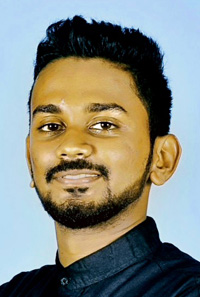
Harsha Priyadharshana
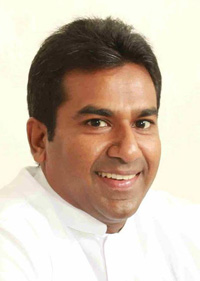
Maneesha Seneviratne
New candidates are also dismayed by high advertising rates charged by electronic media.
A 10-second TV ad on leading state and private broadcasting networks costs Rs. 37,000-345,000 depending on time slot and intervals between ads, according to a publicist who works with one candidate.
Attorney-at-law Maneesha Seneviratne, who is contesting on the United National Party (UNP) ticket in the Kandy district, said he was finding it difficult to reach voters who live in remote areas of the Udunuwara electorate for which he is the organiser.
“This affects all the candidates but is worse for fresh candidates since they are relatively new faces, and campaigning through electronic media has become very expensive,” Mr Seneviratne told The Sunday Times.
He suggested the Election Commission should consider running a dedicated TV channel for campaigning that would charge candidates a nominal rate.
Law student Harsha Priyadharshana Maddumage, 22, who is trying to win a seat for the Samagi Jana Balawegaya in the Kegalle district, is also finding himself at a distinct disadvantage.
“The restrictions due to the COVID-19 situation mostly act against new candidates, who have less money to spend on an election campaign,” he said.
Parties and candidates were upset by the majority decision of the three-member commission to strictly implement the Parliamentary Elections Act of 1981 rather than continue to follow circulars issued by the Election Secretariat since 2005 that amend provisions in the Act for practical issues such as allocating playgrounds for rallies or putting up posters in public places.
Party representatives took up these issues with the commission in mid-June with no success, and complained of being unable to campaign as aggressively as those who are well funded and connected.
The Sunday Times learns the commission told them it was merely implementing the law that was passed by parliament itself, and any amendments to be made should be brought through parliament.
Since 2005, the Election Secretariat, considering the practical difficulties of some provisions in the Act, began issuing many circulars to amend it, with the power vested in the secretariat under 101(G) of the Act. This time, the commission has decided to revert to the skeleton law alone, disregarding other circulars.
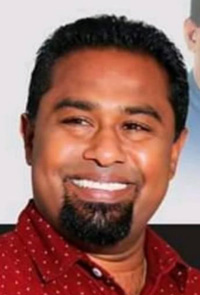
Amal Chinthaka Mayadunne
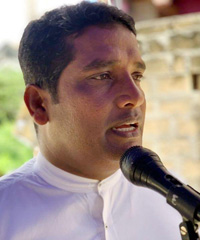
Emmanuel Arnold
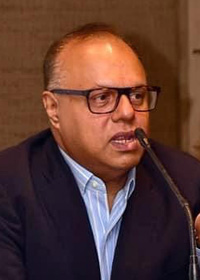
Anura Fernando
The Act’s provisions hamper them, candidates allege, as they struggle to introduce themselves and their policies to voters. For example, in order to make a “legally valid meeting” to carry out campaigning activities, a candidate must ensure that at least three persons are gathered in the campaign office.
The commission also recently announced a candidate could only open a party office in his or her respective electorate and could not display election cutouts or posters at all times their offices but only while a campaign rally was underway.
Emmanuel Arnold, who stepped down as mayor of the Jaffna Municipal Council to contest the general election on the Tamil National Alliance (TNA) ticket, said the stricter rules, COVID-19 public gathering restrictions and expensive air-time for campaigning ads combined to create a massive hurdle to persuade constituents to cast votes his way.
“It is extremely difficult to reach those who live in remote villages in my electorate compared to voters residing in suburban city areas. In the absence of adequate election canvassing and strict regulations on campaign activities, will this election be a free and fair election?” Mr. Arnold asked.
He added that intra-party competition for preferential votes also favoured some candidates who were given more campaign funds than others.
Preferential votes are crucial to a candidate’s success in this election, where only only 2.3 per cent (196) of the 7,452 candidates will be elected to parliament directly.
Anura Fernando, contesting the Colombo North seat under Sri Lanka Podujana Peramuna (SLPP) banner, says he is caught between the stricter election rules and the expense of TV ads.
The new rules forbid candidates to display their preferential vote numbers for much of the time, unless a rally is in process.
“Since there is not enough visibility for us in the electorates we have to depend on electronic, print and social media in which advertising charges are at exorbitant rates. This makes it really difficult to put up a good campaign,” he said. 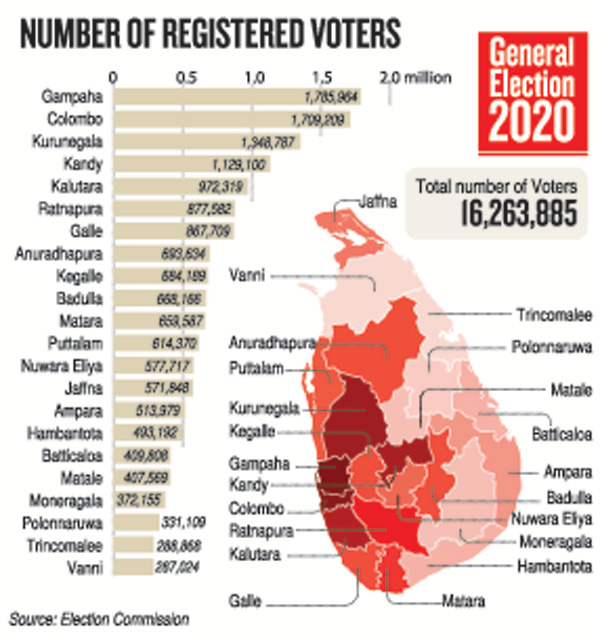
Mr. Fernando, an accountant by profession, is attached to Viyath Maga, a collective of professionals that supported President Gotabaya Rajapaksa in the last presidential polls.
He also feels a blast of displeasure from party colleagues as he says SLPP politicians are hostile to those attached to the collective.
“I don’t get any support from the local municipal councilors or any other local politicians of the party for campaigning,” he said.
Amal Chinthaka Mayadunne, contesting for the SLPP from the Puttalam district, had a similar complaint.
Unable to carry out normal grassroots campaigning activities, parties and candidates have also tapped into digital space, using social media to promote themselves.
On Facebook, almost $US60,000 has been spent on some 4,808 election ads. Leading politicians and well-funded candidates are spending from $US100-400 per ad.
The stricter campaigning laws and the parties’ inability to launch effective election campaigns because of COVID-19 guidelines on social distancing has also raised comment from election watchdogs.
The Election Commission is being too rigid on the law, the National Coordinator of the Centre For Monitoring Election Violence (CMEV), Manjula Gajanayake, said: “The Election Commission has to be practical when it comes to implementation of relevant laws and regulations”.
“For political parties and candidates, campaigning would be challenging this time mainly due to the global pandemic and the commission’s decision of not to implement relaxed regulations for campaigning activities,” Rohana Hettiarachchi, Executive Director of People’s Action for Free and Fair Elections (PAFFREL) said.
The CMEV is engaged in monitoring electronic, print and social media to study how political parties and candidates are utilising funds for campaigning and how the election would be run under the “new normal” caused by the pandemic.
Several mock election activities such as voting and ballot counting were held this week to help identify the challenges.
In Jaffna, when a mock vote count was conducted with the participation of election officers, it was noted that it was a challenge to maintain the required social distancing among the visibly tired face-mask wearing staff working for long hours in small rooms.
The Returning Officer and Election Department officials who oversaw the process noted the difficulties.
A member of the Election Commission present at a mock vote-counting process, Professor Ratnajeevan Hoole, said the main objective of the exercise was to learn how quickly votes could be counted and finalised in current conditions.
“As of now, we are planning to release the vote counting results in two phases: the number of votes each party receives can be released on the day following the vote (August 6) and the preferential votes received by respective candidates would follow the next day,” he told media.

| Here they come | |
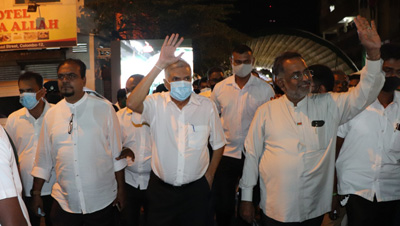 UNP leader Ranil Wickremesinghe waves at supporters as he arrives for a meeting 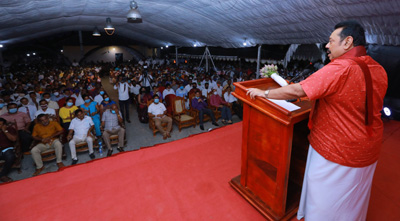 Prime Minister Mahinda Rajapaksa addressing an SLPP meeting  Samagi Jana Balavegaya leader Sajith Premadasa is greeted by a candidate 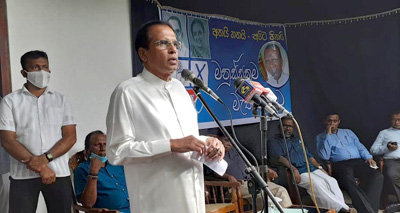 Former President Maithiripala Sirisena speaks at an SLFP meeting 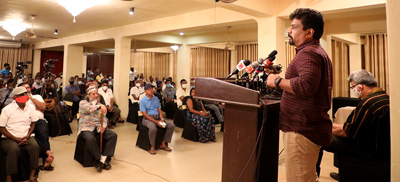 JVP leader Anura Kumara Dissanaike addressing a gathering |

